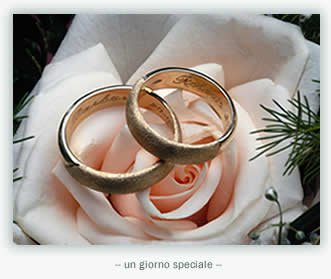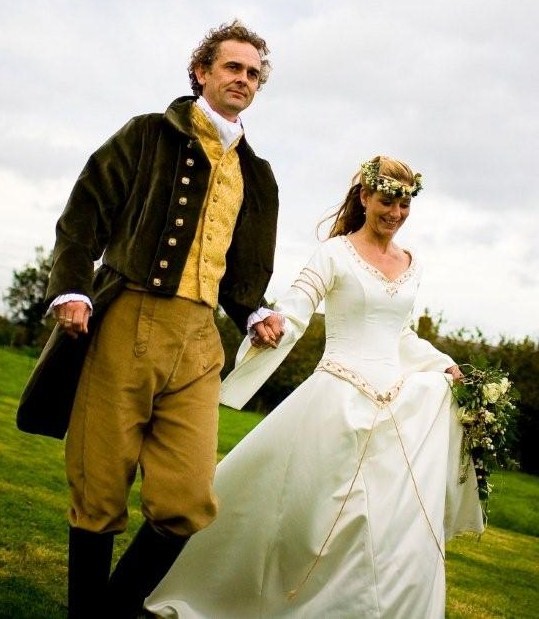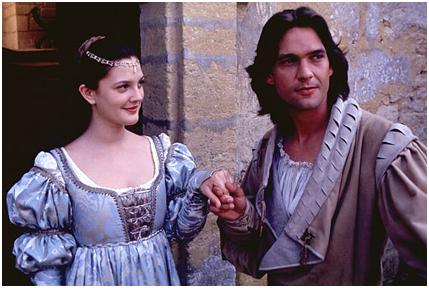
Life in the Middle Ages was not all pink and flowers. There was a lot of poverty and who was well economically only were the lords, while the rest of the population constituted by the most people, lived in poverty, in poor sanitation and hunger. It is important to know these things because we who live in modern times we are fascinated by these ancient times and we brides dream maybe marriage medieval chivalry, love and kindness, but all these things were a utopia at the time because even among gentlemen marriages were arranged by families and were not made for love. It was all an appearance and suffered from feelings.
Luckily, today's brides, They can choose their mate, and can recall these times of love and kindness by embedding them in their wedding day to have both the romantic atmosphere of the time that true happiness came from our own free choices.
Life Feudal
For safety and to be defended, people in the Middle Ages lived in large estates, in small communities around a noble lord, who lived in a castle or a family fenced surrounded by knights guard. Most people lived on farms within these walls forming small villages. The castles were isolated and received occasional visits from street vendors, pilgrims on their way to the Crusades, soldiers or other feuds.
By means of this system” feudal”, the king gave land or other feuds to his nobles more important, barons, Bishops, in exchange for their contribution was to send soldiers and knights in his service. At the lowest level of society were farmers, also called “serfs” the “villani”. They were serving their lord (liege, valvassore the valvassino) he had received a fief from the King, in exchange for the granting of protection and having to live within the walls of the feudal. In exchange for working the land and gave the proceeds to the agricultural master noble.

La Magna Charta
In medieval nobles they divided their lands, among the minor nobility, namely vassals. Many of these vassals became so powerful that the king had difficulties to control them. From 1100, some barons had castles and courts that competed at the King, which he felt seriously threatened when the nobles were not happy with the relationship with the Crown.
In 1215, an alliance of English barons forced King John Lackland (John Lackland) to sign Magna carta (the Great Document Freedom), a document written in Latin, which gave the English barons recognition of feudal rights.
The military defeats suffered at the hands of John Philip II of France, the heavy taxes and the abuse of royal privileges were the origin of yet another uprising of the barons against the royal authority; they drew up and sent to the king a list of demands, and his rejection broke the oath of obedience and moved to London, thus forcing the king to come to terms: King John and the barons met accepted the document.
The Magna Charta for the first time were formally defined the relationship between the monarchy and feudal lords, codifying the rights and duties of feudalism and reforming the judicial system. Many abuses of authority were with it limited, including the power of the Crown to establish taxes without the consent of the House of Commons. The trade was protected, guaranteeing the free exercise in London and several other cities, villages and harbors of England (also for foreign traders) and with the establishment of a system of weights and measures official.
Although it did not give rights to ordinary people, Magna Carta was the first step against the absolute monarchy in England and the first time a British monarch came under the control of the law.

Country life
Farmers worked the land and produce the goods that were needed to the Lord and to his family. This exchange was never without inconvenience to the serfs. In fact they were heavily taxed and had to give up much of what we gathered and then their conditions were not idyllic. The farmers did not belong to themselves, according to medieval law. The lords, in close collaboration with the church, They assumed the role of judges in the performance of the laws of the feud.




